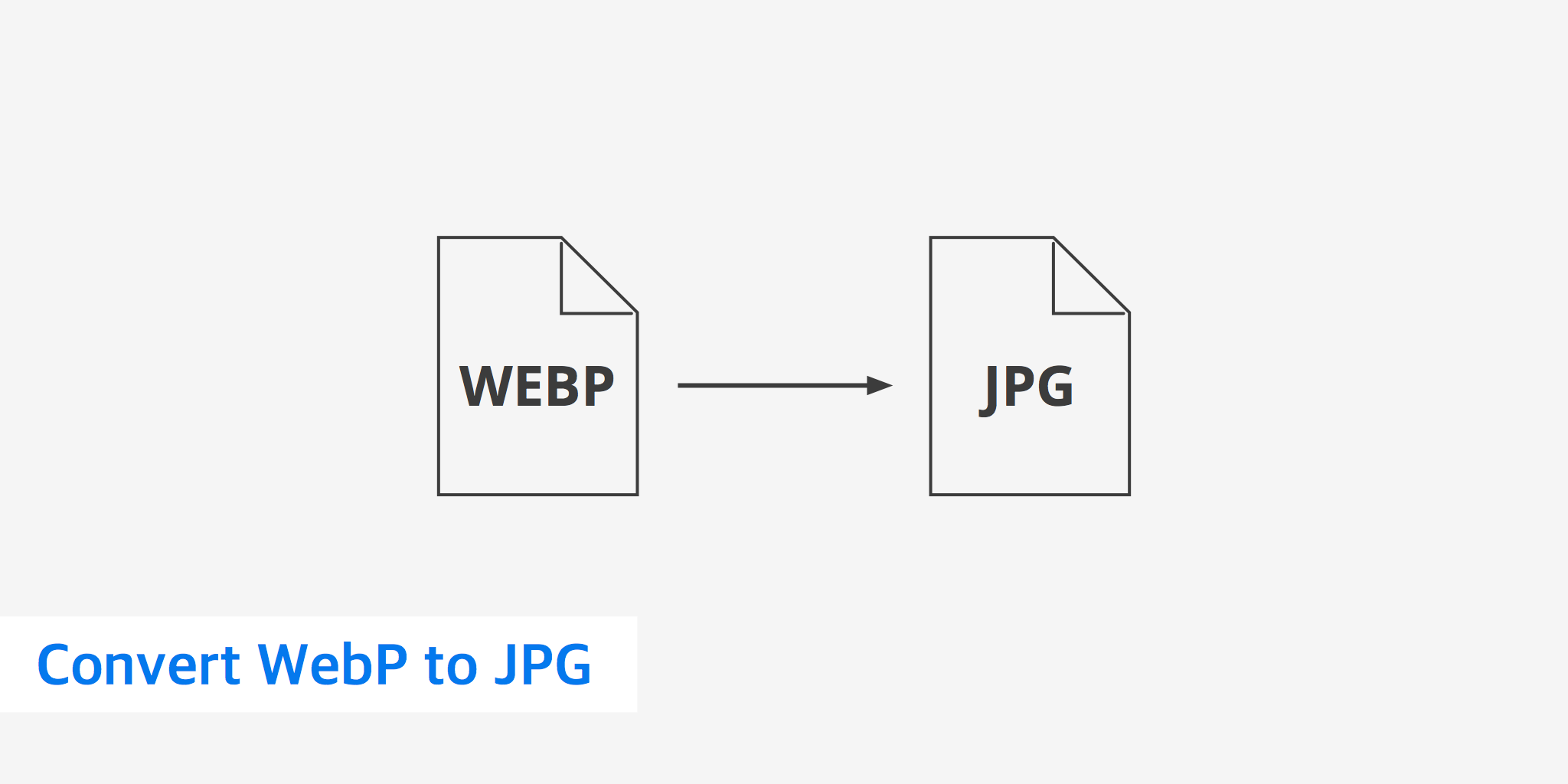How to Convert WebP to JPG

We've talked a lot of converting PNG to WebP and JPG to WebP due to the additional savings in file size. However, we haven't yet discussed converting a WebP image to JPG format. For many, this likely won't be a concern as if you are using WebP images, your website will load faster thus keeping your visitors happy.
Additionally, if you are taking advantage of a proper WebP delivery method (e.g. using Cache Enabler to deliver cached WebP files) then visitors using unsupported browsers will simply fall back to seeing JPG / PNG images. This being said, there may still be certain scenarios where you want to convert WebP to JPG. For example, if you come across an image you want to use online, however it is only available in WebP format you may need to convert it to JPG dependant upon what you are using it for.
WebP vs JPG
While some people may be confused about the difference between WebP and JPG, they are quite simple to understand. JPGs are lossy image formats. This allows them to offer a smaller file size at the cost of a lower quality image (depending on the compression level defined). JPGs are ideal for complex photos, although they do not generally work well for simple text images.
WebP files, on the other hand, offer lossless and lossy compression. Spearheaded by Google, WebP offers even smaller file sizes than JPG due to its advanced compression techniques. Learn more about how WebP compression works.
The pros and cons of converting WebP to JPG
While both WebP and JPG have their various strengths and weaknesses, it's wise to understand the pros and cons of converting WebP to JPG files. The main reason that people convert WebP files to JPG files is that WebP files are not supported by all web browsers. Read more about the current state of WebP browser support. Because of this, sites that use WebP images can either use plugins or scripts that evaluate browsers and deliver supplementary file formats if WebP is not supported. However, for those who aren't interested in delivering WebP images and want to simply convert to JPG format, consider the following pros and cons.
Pros
- JPG files are ideal for high quality images and dense details, which makes them perfect for websites and pages where quality and clarity is essential.
- JPG files are currently one of the standards for online images. This means they'll appear without issue on virtually all browsers and platforms.
Cons
- JPG files offer a small file size however WebP files are even smaller and may be preferred by people looking to further optimize their images.
- JPG files don't support transparency, which can make them difficult to use for some purposes.
- JPG files will not display text-based images such as logos and icons as clearly as a WebP file.
Convert WebP to JPG tools
There are many WebP to JPG converter tools available for use. These come both natively in some image editing programs as well as online tools which are dedicated to converting image file formats. Some of the primary tools are:
- Cloud Convert - A free online image processing service that allows you to convert WebP files to JPGs. Simple, easy to use and ideal for the occasional user, Cloud Convert is a great go-to tool.
- XnConvert - A valuable image editing software that works on Linux, Mac, and Windows systems. After you've downloaded and installed the software, you can easily drag web files into the interface and alter the formats to JPG.
- Convertio - This online-based tool is similar to Cloud Convert in that you can simply drag and drop your WebP images and have them converted to JPGs. You can also either choose to upload them from various locations (i.e. computer, Gdrive, Dropbox) and have them saved to these third party services as well.
While WebP images are perfect for many uses, they're not compatible with all browsers. Because of this, it's important to know how many of your website visitors are using a WebP compatible browser or implementing a plugin which will deliver an alternative image format to unsupported browsers.
As we can see, converting WebP to JPG is quite a straightforward process and knowing which conversion tools to use can greatly streamline the process. It is dependant upon your particular scenario which will decide whether or not it's in your best interest to convert WebP to JPG. However, for those who do, they can rest assured that their images will be properly delivered across all browsers, however, will come at the cost of sacrificing some of their image file size savings.